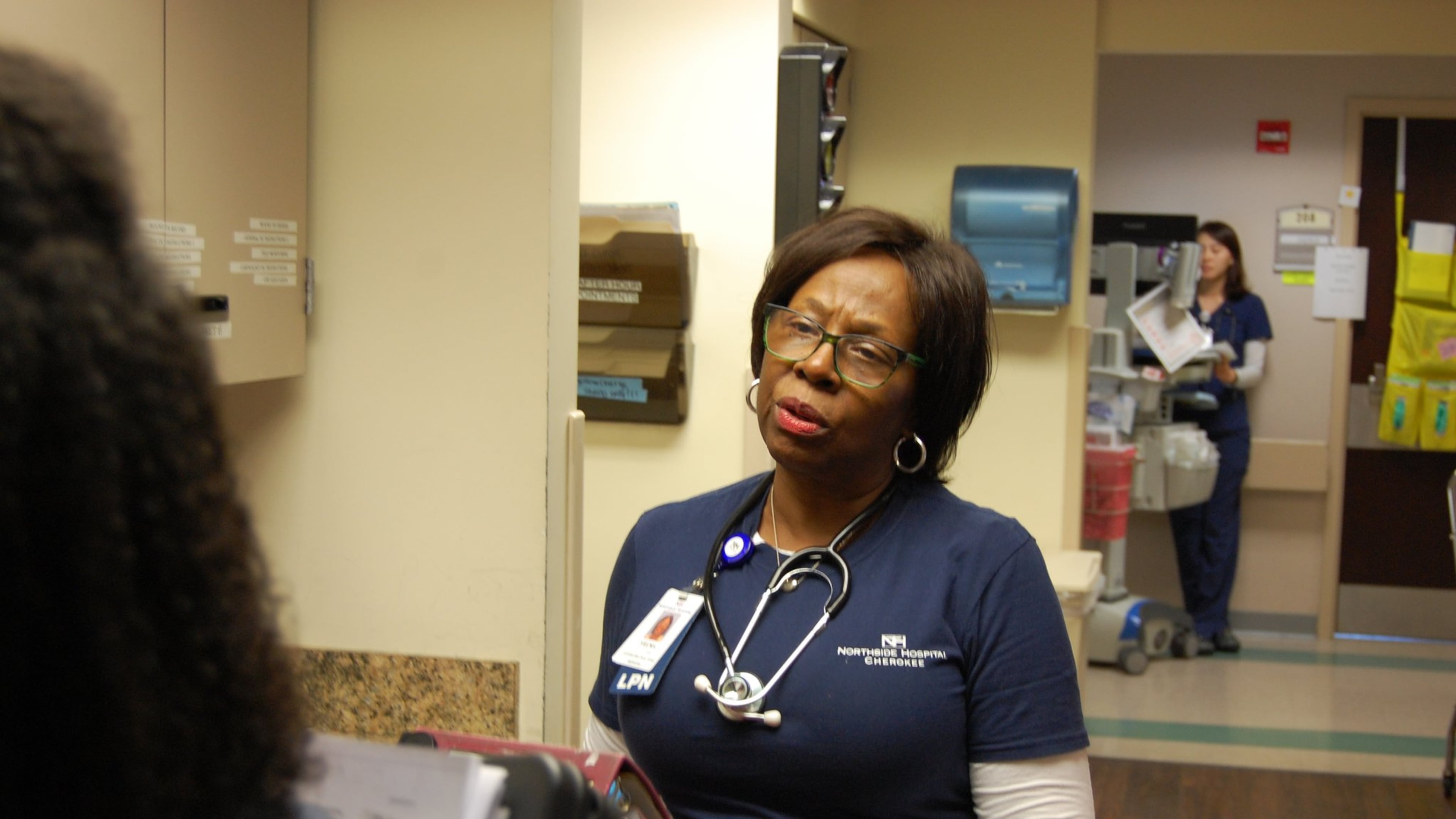Life with Gracie: At 71, Northside Cherokee’s first black nurse still endures

May 6 won’t look anything like March 1, 1969, the day Velma Blackwell first reported to work at Northside Hospital in Canton.
In ’69, Blackwell was 24 and the first African-American to work as a nurse at the facility, known then as R.T. Jones Hospital.
Notice I didn’t say the first nurse. There were other black nurses — registered nurses, in fact — but they weren’t allowed to hold the title of “nurse” nor were they supposed to eat with their white colleagues in the hospital cafeteria, Blackwell included. Today there are 4,700 nurses employed by Northside Hospital Healthcare System, and 33 percent of its clinical professionals are African-Americans and other minorities.
Despite a difficult start, Blackwell, now 71, found her place at Northside Cherokee, and she will again May 6 when she and her colleagues are scheduled to move into a new facility, the hospital’s first in almost four decades.
It will be a heady moment for the licensed practical nurse. When her husband recently suggested she retire, she cried. She couldn’t do it.

Northside is her family now, and when your family moves, you move with it.
The way Blackwell sees it, “All the things I’ve gone through here, I deserve to go.”
But it’s more than that.
Being here at the hospital changed her life, afforded her opportunities she wouldn’t have otherwise had.
That included meeting U.S. Rep. John Lewis, with whom she worked to get a family leave act, and encouraging other African-American women to pursue degrees in nursing. Indeed, Blackwell has long enjoyed a certain celebrity status here and is often called upon to speak about her role at Northside at local churches and civic organizations.
“I’m very determined to be a part of this for as long as I can,” she said.
That’s a good thing.
Nurses make up the largest segment of the health care workforce in the U.S., and nursing is currently one of the fastest-growing occupations in the country. Despite that growth, demand is outpacing supply.
According to the Bureau of Labor Statistics, 1.2 million vacancies will emerge for registered nurses between 2014 and 2022.
Why?
“The baby boomer population is aging and requiring more health care, and at the same time, many nurses of the same generation are retiring,” said Billy Hayes, Northside Hospital Cherokee’s CEO.

In an effort to address the shortage, Hayes said Northside recently made a $500,000 gift to Reinhardt University to help launch a nursing program at the school. The university is poised to recruit its first cohort of students for classes scheduled to begin in January.
“We have been actively recruiting for additional nursing staff in the lead-up to the new hospital opening,” Hayes said.
Blackwell knew she wanted to be a nurse as early as age 15. After graduating from high school in 1964, she met and married Samuel Blackwell before completing a license practical nurse program at Northern Michigan University.
When her husband was discharged from the U.S. Army, the couple moved to Cherokee County, where Samuel Blackwell had grown up and where Velma had applied for a job at R.T. Jones.
“What struck me at the time was they didn’t allow black people to be any kind of nurse,” Velma Blackwell said. “Even registered nurses could only work as aides.”
White colleagues agreed to work with her, but they would not eat with her. Blacks rejected her because they believed she “was playing for the other team.”
“I didn’t have many friends, black or white,” Blackwell said, “but it wasn’t all doom and gloom.”
Except for a brief hiatus to give birth to her five children, Blackwell has spent nearly 50 years here working in labor and delivery, the Intensive Care Unit, orthopedics, and the past 15 years in medical surgery.

But she isn’t done.
“I don’t feel like I’m as old as I am,” she said. “I’m not retirement material.”
I read somewhere recently that nearly 30 percent of women ages 65-69 are working, up from 15 percent in the late 1980s, an analysis by Harvard economists Claudia Goldin and Lawrence Katz found. Eighteen percent of women ages 70-74 work, up from 8 percent.
The main reason for the delay in retirement was, like Blackwell, they enjoy what they do.
Given the nursing shortage, that’s a good thing, and even better that Northside is still happy to have her.


